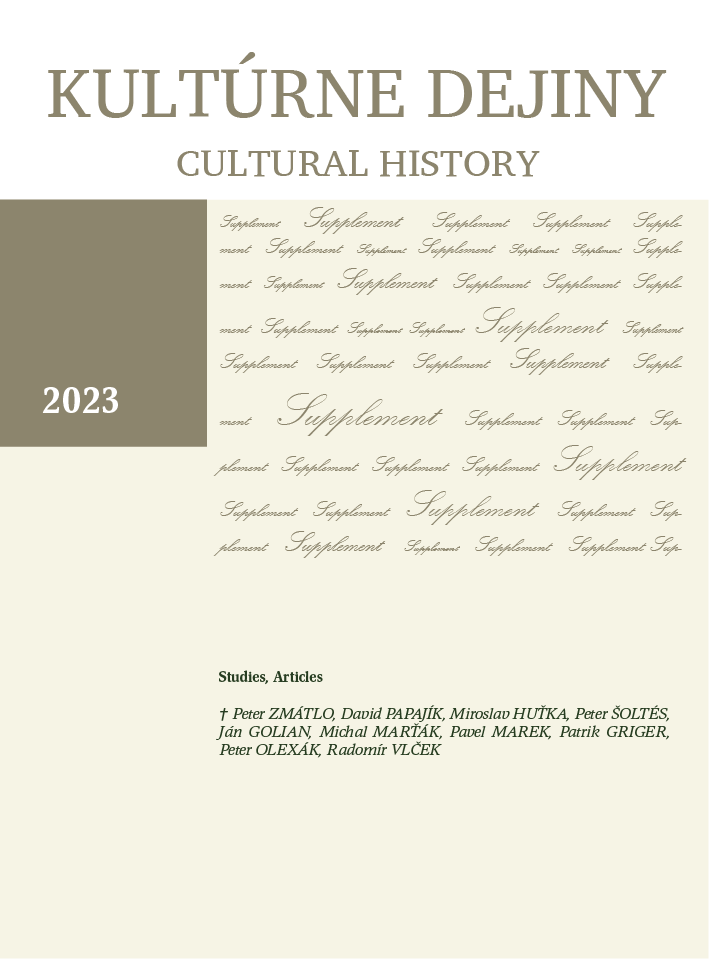„Nepochybne nikde nie je blahodarný vplyv nemeckej kultúry tak nápadne viditeľný, ako na týchto obyvateľoch Karpát“
„Undoubtedly, nowhere is the beneficial influence of German culture so strikingly visible as on the inhabitants of the Carpathians“
National character of the German inhabitants of Spiš in the statistical and topographic literature of the 19th century
Author(s): Peter ŠoltésSubject(s): History, Ethnohistory, Local History / Microhistory, Oral history, 19th Century, Prehistory
Published by: VERBUM - vydavateľstvo Katolíckej univerzity v Ružomberku
Keywords: national character; ethnic stereotypes; Spiš/Zips/Szepes county; Germans; statistical literature; Province of 16 Spiš/Zips/Szepes towns
Summary/Abstract: This study focuses on the relationship between the struggle for maintain¬ing the privileges and rights of the free municipalities of the Spiš (Szepes, Zips) county, particularly the Province of 16 Spiš towns, in the first third of the 19th century on one hand and the literary activities of local intelligentsia on the other. As part of a deliberate strategy to eliminate the threat of losing their autonomy and becoming subject to the jurisdiction of the county administration, they constructed an image of Spiš as an exceptional region. The fact that the German-speaking population of Spiš was able to adapt to severe climatic and natural conditions and secure prosperity, education, and cultural dominance was explained in the contemporary intellectual discourse as stemming both from the privileges and rights they had preserved since the Middle Ages and their distinctive national character. In addition to traditional “German” virtues such as industriousness, diligence, a sense of order, and cleanliness, the character of the Spiš Germans was allegedly shaped by newly acquired qualities attributed to their Protestant heritage and adaptation to the environment. The stereotype of Germans as “Kulturträger” was strongly present and from the Enlightenment discourse of the turn of the 18th and 19th centuries it was translated into the historiography and ethnography of German settlement in Eastern Europe in the second half of the 19th century.
Journal: Kultúrne dejiny
- Issue Year: 14/2023
- Issue No: Supplement
- Page Range: 70-86
- Page Count: 17
- Language: Slovak

